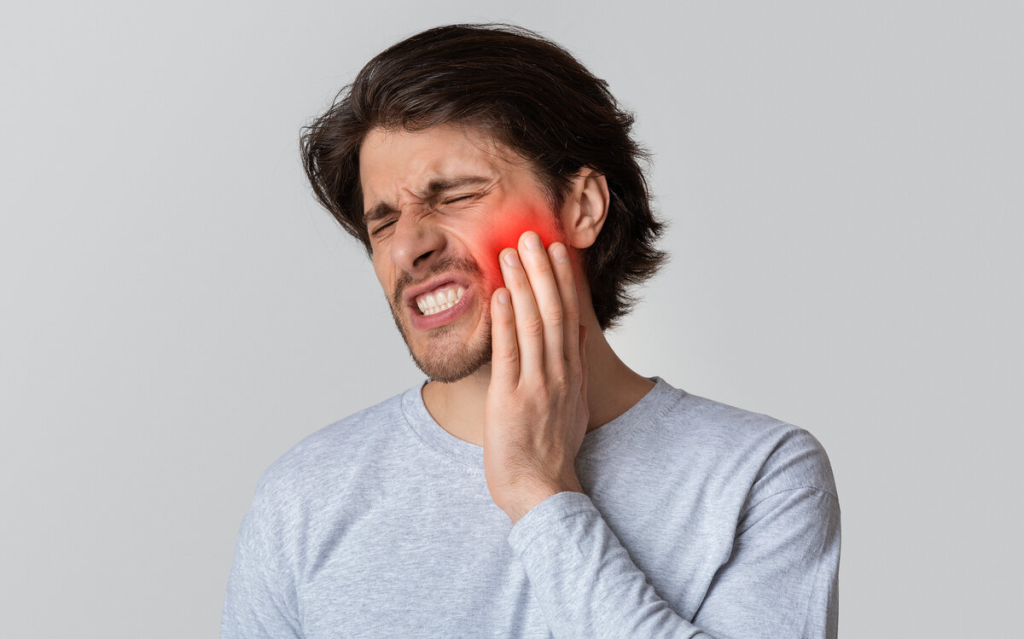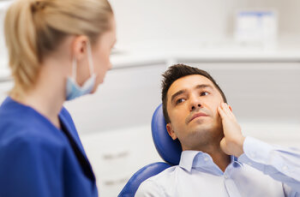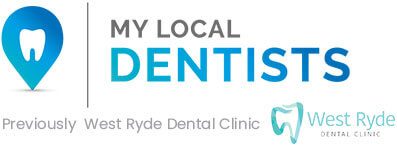Comprehensive Guide to Broken Tooth Repair: Causes and Symptoms

In everyday life, our teeth are subjected to significant work, from aiding us in articulating speech to breaking down the food we eat.
It’s easy to take our teeth for granted until we encounter an issue, such as a broken tooth.
A broken tooth, also referred to as a fractured or cracked, is a common dental problem that can cause discomfort and difficulty eating and may even threaten oral health if not addressed promptly.
Broken teeth can result from various causes, including physical trauma, biting on hard substances, or the weakening of the tooth due to decay or large fillings.
No matter the cause, understanding how to identify the signs of a broken tooth and the appropriate steps to take for repair is crucial.
This guide will delve into the causes, symptoms, and treatment options for a broken tooth, aiming to equip you with the knowledge necessary to handle this dental dilemma effectively.
Causes of Broken Teeth
Understanding the causes of broken teeth can empower you to take preventive measures and seek immediate treatment. Various factors contribute to the occurrence of this common dental issue:
 Accidents or Injuries
Accidents or Injuries
Accidents and injuries are one of the leading causes of broken teeth. A sudden impact to the face or mouth, often due to sports injuries, falls, or car accidents, can lead to teeth chipping, cracking, or breaking.
Dental injuries can also occur from seemingly harmless activities such as opening a bottle cap with your teeth or biting on hard objects like pens or pencils.
Cavities and Tooth Decay
Cavities resulting from tooth decay can significantly weaken the structure of a tooth.
As the decay erodes the tooth’s enamel and dentin, it becomes susceptible to breaking even under normal chewing pressures. In severe cases, the tooth might break, leaving only the root in place.
Teeth Grinding or Clenching
Bruxism, the technical term for grinding or clenching your teeth, often happens involuntarily while sleeping. Excessive pressure on the teeth can lead to chipping, cracking, or breaking over time.
If you wake up with a sore jaw, headache, or notice wear on your teeth, you may be grinding your teeth at night and should consult a dentist.
Large Fillings that Weaken the Integrity of the Tooth
Large fillings, especially those in teeth with significant decay, can weaken the tooth’s overall structure.
If a filling has replaced a significant portion of a tooth, its structural integrity may be compromised, making it more prone to breaking under the pressure of biting and chewing.
This is particularly true for fillings made from amalgam (a blend of metals), which do not bond to the tooth structure and can, over time, cause cracks or fractures.
Symptoms of a Broken Tooth
Identifying a broken tooth as soon as possible minimises discomfort and prevents further damage. Symptoms can vary based on the severity and location of the damage, but some of the most common symptoms include:
Pain when Chewing or Biting
One of the most notable signs of a broken tooth is experiencing pain or discomfort while chewing or biting.
This can occur when the break exposes the nerves within the tooth, leading to heightened sensitivity and pain when pressure is applied.
Sensitivity to Hot, Cold, or Sweet Foods and Drinks
Sensitivity to extreme temperatures or certain foods can also indicate a broken tooth.
When the tooth’s protective layers are compromised, the nerves and dentin beneath are more sensitive to hot, cold, or sweet foods and drinks, which can cause sharp or sudden pain.
Sharp Tooth Edges
If a tooth breaks, the remaining edges can be quite sharp and may cut your tongue or inner cheeks. The broken part may feel different or unnatural when your tongue glides over it.
Swelling in the Gum Around the Broken Tooth
In some instances, especially if the tooth breakage is due to an infection or abscess, you might notice swelling in the gum around the broken tooth. This swelling can be painful and is a sign that you must seek immediate dental care.
Remember, not all broken teeth cause pain, and some smaller fractures may not even be immediately noticeable. Regular dental check-ups are key to identifying and addressing such issues promptly.
Diagnosing a Broken Tooth
If you suspect you have a broken tooth, it’s crucial to consult a dental professional as soon as possible to confirm the diagnosis and begin treatment. Here’s how a dentist typically diagnoses a broken tooth:
 Physical Examination by the Dentist
Physical Examination by the Dentist
The initial step in diagnosing a broken tooth is a physical examination. The dentist will visually touch your mouth and the affected tooth.
Using dental instruments, they may gently probe the tooth to assess the damage level and identify any sharp edges or exposed nerve tissue.
The dentist may also ask you to bite down or close your mouth in a specific way to understand the break’s extent and location better.
Dental X-Rays
If the break isn’t immediately visible during a physical examination or the dentist needs more detailed information, they will likely order dental X-rays.
X-rays provide a clear picture of the interior of the teeth, revealing any breaks or cracks that may be hidden below the surface or near the root.
These images also help the dentist evaluate the extent of the damage and plan the most effective treatment approach.
Through these diagnostic measures, dentists can accurately assess the condition of a broken tooth and develop a comprehensive plan for repair and recovery.
Prevention of Broken Teeth
While it is impossible to eliminate the risk of breaking a tooth, certain practices can significantly reduce the likelihood. Here are some preventive measures:
Regular Oral Hygiene
Maintaining good oral hygiene is crucial in preventing dental problems, including broken teeth.
Regular brushing at least twice a day and flossing daily can help prevent tooth decay and gum disease, which can weaken teeth.
Regular fluoride mouthwash can also help strengthen tooth enamel and prevent decay.
Use of Mouth Guards for Sports
Sports-related injuries are a common cause of broken teeth.
If you engage in contact sports or activities with a risk of falls or facial impact, wearing a mouth guard is recommended.
Custom-fit mouth guards your dentist provides offer the best protection, but over-the-counter versions are also available.
Avoiding Hard Foods
Eating hard foods like hard candy, ice, or hard nuts can crack or break your teeth, especially if they have been weakened by decay or large fillings.
It’s best to avoid these foods, or at least be very careful when consuming them.
Regular Dental Check-ups
Regular dental check-ups are crucial for maintaining oral health and preventing issues like broken teeth.
Dentists can detect problems early, often before you notice any symptoms.
They can spot decay and damage from bruxism and monitor large fillings that might weaken your teeth’ integrity.
They can then treat these issues before they lead to a broken tooth.
Adhering to these preventive measures can help protect your teeth and reduce the likelihood of breakage.
Conclusion
In conclusion, promptly and effectively dealing with a broken tooth is paramount to maintaining good oral health and avoiding potential complications.
The causes of a broken tooth can vary, with incidents such as accidents or injuries, cavities, teeth grinding, or large fillings weakening the tooth’s integrity, often at the root.
Symptoms such as pain when chewing or biting, sensitivity to hot or cold, sharp tooth edges or swelling gums should never be ignored.
Diagnosis typically involves a physical examination and dental X-rays, followed by an array of treatment options tailored to the nature and extent of the damage.
Equally important is the role of prevention, which includes maintaining regular oral hygiene, using mouth guards during sports, avoiding hard foods, and scheduling regular dental check-ups.
It’s crucial to remember that professional help is just a call away.
If you suspect you have a broken tooth, don’t hesitate to consult our professional dentists; their expertise is vital in ensuring optimal recovery and maintaining oral health.
References
Chipped Tooth: Broken or Cracked Teeth Repair and Treatment https://www.dentaly.org/us/chipped-tooth-repair/
Repairing a Chipped or Broken Tooth https://www.webmd.com/oral-health/repairing-a-chipped-or-broken-tooth
